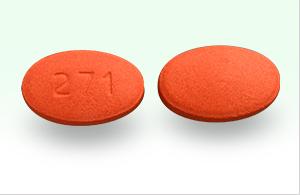Etodolac Interactions
There are 388 drugs known to interact with etodolac, along with 10 disease interactions, and 2 alcohol/food interactions. Of the total drug interactions, 100 are major, 280 are moderate, and 8 are minor.
- View all 388 medications that may interact with etodolac
- View etodolac alcohol/food interactions (2)
- View etodolac disease interactions (10)
Most frequently checked interactions
View interaction reports for etodolac and the medicines listed below.
- Adderall (amphetamine / dextroamphetamine)
- Advair Diskus (fluticasone / salmeterol)
- Ambien (zolpidem)
- Aspirin Low Strength (aspirin)
- Benadryl (diphenhydramine)
- Celebrex (celecoxib)
- Cymbalta (duloxetine)
- Fish Oil (omega-3 polyunsaturated fatty acids)
- Flexeril (cyclobenzaprine)
- Flonase (fluticasone nasal)
- Klonopin (clonazepam)
- Lexapro (escitalopram)
- Lipitor (atorvastatin)
- Lyrica (pregabalin)
- Metoprolol Succinate ER (metoprolol)
- Nexium (esomeprazole)
- Norco (acetaminophen / hydrocodone)
- ProAir HFA (albuterol)
- Prozac (fluoxetine)
- Singulair (montelukast)
- Synthroid (levothyroxine)
- Topamax (topiramate)
- Tylenol (acetaminophen)
- Vitamin B12 (cyanocobalamin)
- Vitamin C (ascorbic acid)
- Vitamin D2 (ergocalciferol)
- Vitamin D3 (cholecalciferol)
- Xanax (alprazolam)
- Zoloft (sertraline)
- Zyrtec (cetirizine)
Etodolac alcohol/food interactions
There are 2 alcohol/food interactions with etodolac.
Etodolac disease interactions
There are 10 disease interactions with etodolac which include:
- asthma
- fluid retention
- GI toxicity
- rash
- renal toxicities
- thrombosis
- anemia
- hepatotoxicity
- hyperkalemia
- platelet aggregation inhibition
More about etodolac
- etodolac consumer information
- Compare alternatives
- Pricing & coupons
- Reviews (82)
- Drug images
- Latest FDA alerts (4)
- Side effects
- Dosage information
- Patient tips
- During pregnancy
- Drug class: Nonsteroidal anti-inflammatory drugs
- Breastfeeding
- En español
Related treatment guides
Drug Interaction Classification
| Highly clinically significant. Avoid combinations; the risk of the interaction outweighs the benefit. | |
| Moderately clinically significant. Usually avoid combinations; use it only under special circumstances. | |
| Minimally clinically significant. Minimize risk; assess risk and consider an alternative drug, take steps to circumvent the interaction risk and/or institute a monitoring plan. | |
| No interaction information available. |
See also:
Further information
Always consult your healthcare provider to ensure the information displayed on this page applies to your personal circumstances.


